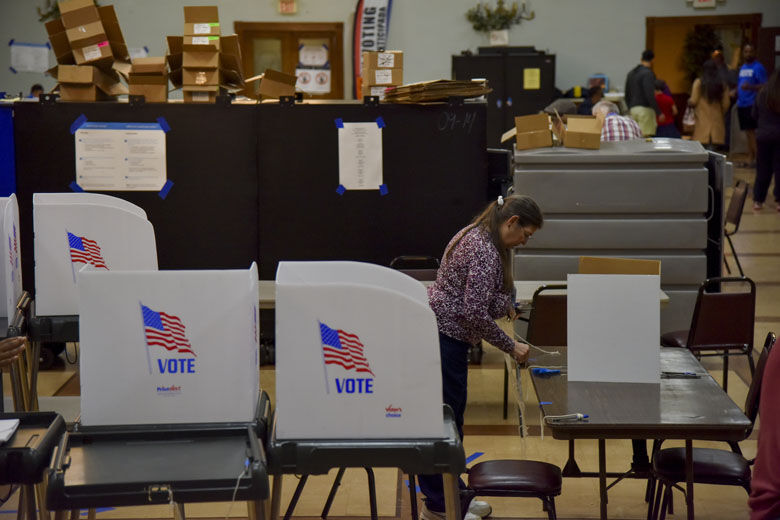This article was republished with permission from WTOP’s news partners at Maryland Matters. Sign up for Maryland Matters’ free email subscription today.

(Photo by Jahi Chikwendiu/The Washington Post via Getty Images)
This content was republished with permission from WTOP’s news partners at Maryland Matters. Sign up for Maryland Matters’ free email subscription today.
Maryland elections officials announced Friday that they will not require the state’s six largest jurisdictions to use a controversial wireless network to transmit voter information to the state during this year’s elections, after the software appeared to malfunction while Tuesday’s special congressional primaries were taking place.
The state’s insistence that Baltimore City and Montgomery, Prince George’s, Baltimore, Anne Arundel and Howard counties use the wireless network had already met with resistance from local officials, who did not like the system or the expense associated with implementing it.
The state elections office wanted to install the secure networks at 1,300 polling places to transmit real-time voter registration changes from electronic pollbooks to the state office in Annapolis during voting.
State elections administrative officials argued that the network was needed to handle a potential increase in the volume of transactions with the state’s shift to same-day voter registration.
But when the network caused a significant slowdown in transmitting information during Tuesday’s special congressional primary in the city and Baltimore and Howard counties, elections officials decided to put the full implementation on pause.
Officials and good government advocates had expressed fears that the flaws revealed on Tuesday, in an election with low voter turnout, could be magnified in the regular April 28 primaries and during the general election.
In a statement, Nikki Charlson, the deputy director at the Maryland State Board of Elections, said the decision not to require the six jurisdictions to use the system was made “to give voters full confidence that their voting experience will be safe, timely and secure.”
“For Tuesday’s special primary election for the 7th Congressional District, a network was used to connect electronic pollbooks to SBE’s server. While the vast majority of voters voted without issue over 13 hours, a small number of voters encountered delays due to the implementation of this system,” the statement said.







